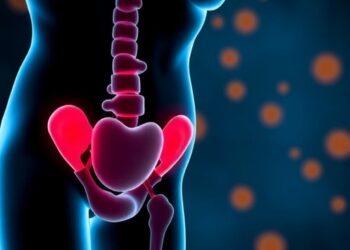High levels of the respiratory irritant ozone and grass pollen are likely during the 2024 Olympic and Paralympic Games if hot, sunny weather prevails, suggests an analysis of historic air quality monitoring data for the city of Paris and surrounding area during previous summers, and published online in the British Journal of Sports Medicine.
High levels of the respiratory irritant ozone and grass pollen are likely during the 2024 Olympic and Paralympic Games if hot, sunny weather prevails, suggests an analysis of historic air quality monitoring data for the city of Paris and surrounding area during previous summers, and published online in the British Journal of Sports Medicine.
Athletes can be affected by environmental factors, despite generally being in good physical condition, note the researchers. Breathing in air pollution during exercise may pose health risks, depending on exposure levels and underlying long term conditions, they add. Endurance athletes are particularly susceptible to allergic symptoms, they say.
To try and estimate the potential impact of background air quality on athletes (and spectators) during the Games, the researchers reviewed historic hourly data between July and September, for air pollutants (2020-23) and pollen (2015-22).
These were collected from 50 permanent automatic monitoring stations of the Airparif network for the Paris region, and from sensors in the Aerobiological Surveillance Network (RNSA).
The researchers focused on background levels of ozone (O3), nitrogen dioxide (NO2), and fine particulate matter (PM2.5) up to a distance of 12.5 metres (city of Paris) to 50 metres (whole region).
The World Health Organization (WHO) recommends air quality thresholds (AQTs) not to be exceeded for more than 3–4 days a year of 15 µg/m3 per 24 hours for PM2.5, 25µg/ m3 per 24 hours for NO2, and 100µg/m3 per 8 hours for O3.
The researchers calculated that the maximum daily average PM2.5 between July and September was 11µg/m3 at traffic stations, which is below the WHO recommended daily AQT. Daily average NO2 levels ranged from 5 µg/m3 in rural areas to 17 µg/m3 in urban areas. Near traffic monitoring stations, this rose to 40 µg/m3 which exceeds the WHO recommended AQT.
Both peaked around 08:00 and 20:00 Hours local time. The ambient O3 level exceeded the WHO recommended AQT on 20 days/month and peaked at 16:00 Hours local time. Ozone inhalation can cause airway inflammation, potentially resulting in airway constriction, cough, and shortness of breath.
From their peak in June, pollen levels fall until September. And between July and September, the general pollen level is 3 times lower than it is in Spring, explain the researchers
In all, 19 different pollen types were identified during the summer months, but Urticaceae (nettles) and Poaceae (grass pollen) represented more than 92% of the total. Their allergic sensitivity is low, except for Poaceae, which is highly allergenic.
The researchers acknowledge various limitations to their findings, chief among which is the lack of direct measurements at individual Olympic venues, as not all venues have dedicated sensors. Nor did the data account for unforeseen changes in traffic during the Games.
But they note: “Despite the lack of evidence towards an additive effect of ozone and PM2.5 on the association between pollutants and mortality, larger effects of air pollutants have been observed when the temperatures are warmer.”
And they write: “Acclimatisation studies in healthy volunteers at very high ozone concentrations suggested that the first few days of exposure caused the worst respiratory symptoms and lung function decline, with at least 3 days of adaptation required, possibly longer for high responders. There is also evidence that people accustomed to ozone or traffic-related air pollution may experience reduced health or performance effects from acute exposure.”
They point out that the data suggest there’s unlikely to be any issue for healthy people, but may affect those who, through age or underlying conditions, may be more vulnerable.
“In general, our data suggest that the concentrations [of PM2.5] observed may have a limited impact on healthy people who will be in Paris for a short period during the Olympic and Paralympic Games, but may have a greater impact on certain vulnerable groups, such as people with chronic diseases (eg, cancer, COPD, diabetes, cardiovascular diseases asthma, etc), children and the elderly, and in particular those who are highly sensitive to pollutants,” they add.
Journal
British Journal of Sports Medicine
Method of Research
Observational study
Subject of Research
People
Article Title
Paris air quality monitoring for the 2024 Olympics and Paralympics: focus on air pollutants and pollen
Article Publication Date
25-Jul-2024




